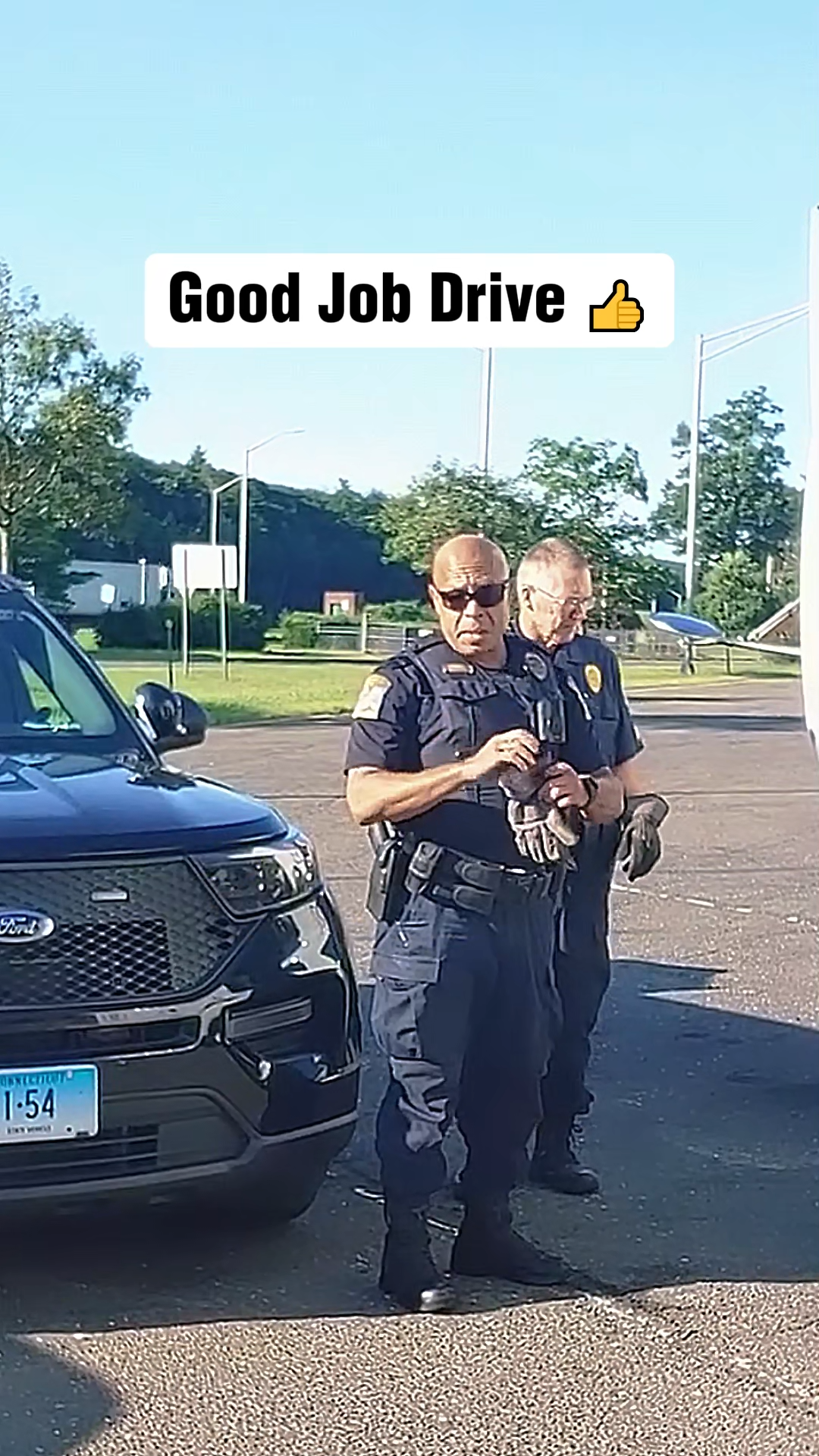In an unexpected and heated exchange on a quiet street corner, a routine traffic stop turned into a viral incident that has left many questioning the boundaries of citizen responsibility and the role of law enforcement.
The incident occurred late last week when a local police officer pulled over a man suspected of driving erratically. What seemed like a standard interaction quickly escalated when the officer asked the driver to assist with a routine control check.
The officer, identified as Officer Ramirez, asked the driver to assist in checking the vehicle’s safety equipment and documents. However, the driver, who remained calm but firm, refused outright, stating, “It’s not a citizen’s job to help with the law.”
The refusal, though surprising, sparked an immediate back-and-forth, with the officer trying to clarify that his request was meant to expedite the process and ensure public safety. But the driver held his ground, asserting that the responsibility of maintaining law and order lies squarely with the authorities.
“That’s not my job,” the driver continued, visibly frustrated. “I pay taxes, I follow the rules, but assisting with controls is something for you and your colleagues. If I were to help, who would ensure you weren’t overstepping your boundaries?”
The officer, taken aback by the response, reiterated that the interaction was meant to be cooperative. Despite the tension, the situation ended without any escalation, and the driver was allowed to continue on his way after a brief check.
The video of the exchange quickly spread across social media, sparking a fierce debate about the role of citizens in supporting law enforcement efforts. While some praised the driver for standing up for personal boundaries, others argued that such a refusal undermines the collaborative relationship needed between the public and the police force.
The Debate: Should Citizens Help Law Enforcement?
The incident raises several important questions: To what extent are citizens responsible for assisting law enforcement in keeping public order? Should civilians play an active role in safety checks and procedures? Or should we, as citizens, stick strictly to our own rights and leave the rest to the authorities?
Law enforcement experts argue that while public cooperation can help police officers execute their duties more efficiently, there is no legal requirement for citizens to assist in routine checks unless specifically requested by law. In fact, many legal systems maintain that it is the duty of law enforcement to carry out their tasks independently of the public, unless in extreme or emergency situations.
On the other hand, some believe that citizens should be more proactive in supporting their local authorities, especially when it comes to minor tasks such as checking vehicle documents or assisting with traffic control during busy periods. They argue that a collaborative community spirit can foster trust and make the process smoother for everyone involved.
The Growing Viral Conversation
As the video went viral, internet users began to take sides. Some felt that the man’s refusal was a clear indication of a broken relationship between the public and law enforcement. Others celebrated his stance, suggesting that the refusal was a rightful assertion of individual freedoms.
“I don’t have a problem with helping out when needed, but it’s important we remember that we should be following the law, not doing the law’s work for them,” one commenter posted.
Meanwhile, others criticized the officer for not knowing how to handle the situation more diplomatically. “The officer should have tried to de-escalate. Asking for help might seem like an odd request during a routine check.”
Conclusion: A Bigger Conversation at Hand
While this one interaction may seem like a small, isolated incident, the conversation it sparked has become far-reaching. In a time when trust between citizens and law enforcement is sometimes strained, debates about the roles both sides play in maintaining order are more important than ever.
Is it the responsibility of citizens to lend a hand when requested, or does this blur the lines of law enforcement duties? Should we all be more willing to help, or should the law stand firmly on its own?
For now, the viral video continues to dominate conversations on social media, leaving us with more questions than answers—but also a renewed understanding of how easily everyday encounters can challenge long-held beliefs.
